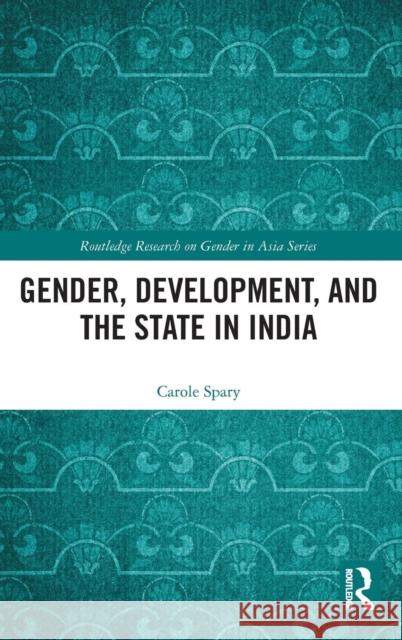Gender, Development, and the State in India » książka
Gender, Development, and the State in India
ISBN-13: 9780415610605 / Angielski / Twarda / 2016 / 258 str.
Gender, Development, and the State in India
ISBN-13: 9780415610605 / Angielski / Twarda / 2016 / 258 str.
(netto: 788,12 VAT: 5%)
Najniższa cena z 30 dni: 730,42
ok. 16-18 dni roboczych.
Darmowa dostawa!
Gender, Development and the State in India offers an original contribution in two ways: firstly as an explicitly gender-focused study of the politics of development policy-making in India, and secondly, as an empirical study of the Indian case which rarely finds mention in the gender mainstreaming literature. This book explores how three key factors - institutions, discourse and agency - influence the formation of state policy on gender and development in India in the post-1990 period. Spary goes on to examine how this issue plays out at multiple levels of governance - at both the national and the subnational (state) level in federal India. This comparative aspect is particularly important in the context of increasing autonomy in development policy-making in India in the 1990s, divergent development policy approaches and outcomes among states, and the emerging importance of subnational state development policies and programs for women. Spary argues that the state is not a monolith but a heterogeneous, internally differentiated collection of institutions, which offers complex and varying opportunities and consequences for feminists engaging the state. The book demonstrates that the Indian empirical case is illuminating for studies of the gendered politics of development as it highlights the politics of negotiating gender equality strategies in the contemporary context of neo-liberal development, and brings together complex issues of modernity, postcolonialism, identity politics, and equality within the broader context of the world's largest democracy. This book will be of interest to scholars interested in the politics of gender equality, state feminism, and gender mainstreaming; development studies and gender in South Asia.











